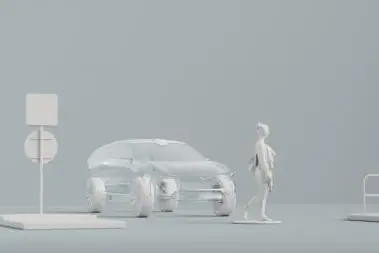PHOTO
Dubai, UAE: Al-Futtaim’s Trading Enterprises, the exclusive distributor of Volvo Cars in the UAE, has announced the next generation of Volvo cars are set to be the company’s safest ever, thanks to cutting-edge software and hardware levels, coupled with continuous and more rapid improvements to safety features with the help of real-time data.
Volvo Cars has always taken a data-driven approach to safety, using traffic data from real-life situations to develop new safety technologies and make its cars even safer. For its next generation of cars, Volvo Cars is now looking towards processing data from customer cars in real time, if customers choose to do so and help Volvo Cars make its cars safer.
By allowing customers to choose and be a part of improving safety levels and traffic safety in this way, Volvo Cars can make continuous and much faster improvements to its cars, constantly improving safety levels. This data would include continuous inputs on the car’s environment from sensors like the high-resolution LiDAR delivered by technology company Luminar.
Volvo Cars engineers would be able to validate and verify autonomous drive (AD) features quicker, to promote a safe roll-out of AD technology. Thanks to the data generated from millions of kilometres driven by tens of thousands of Volvo drivers around the globe, engineers would be able to validate AD features for specific geographic locations much quicker than with a limited number of cars on a test track.
Verified updates to existing systems and new features can be rolled out rapidly through over-the-air-updates, increasing the safety of Volvo cars step by step. The first car to benefit from this new approach to safety development is the fully electric successor to Volvo Cars’ XC90 flagship SUV.
“With help from real-life data we can speed up our development processes and go from years to days,” said Ödgärd Andersson, CEO at Zenseact, Volvo Cars’ autonomous driving software arm. “As real-time collection generates a lot more data, we can create better and higher-quality data sets that allow us to make better and quicker decisions on the next advancements in safety. We’re taking a giant leap to increase safety in and around our cars.”
To process the real-time traffic data they will collect, Volvo Cars and Zenseact are investing in a data factory that will contain over 200 PebiBytes (225 million gigabytes) of data within the next few years. By using artificial intelligence (AI) capabilities, data can be crunched at record times. Customers will be able to choose whether this data is collected about them, and all collected data will be aggregated with adequate safeguards for customer privacy.
“Safety is part of our heritage and the backbone of our company, but software is a crucial part of our modern-day DNA,” said Mats Moberg, head of R&D at Volvo Cars. “So while we continue to build on the 50-year expertise of the industry-leading Volvo Cars Accident Research Team, we can now also leverage AI as a new, virtual accident research team.”
The use of real-time data is part of Volvo Cars’ long term vision for a future where collisions simply no longer happen, by equipping its cars with some of the best sensors available and advanced, continuously improving safety and autonomous drive systems.
Volvo Cars’ forthcoming fully electric flagship SUV will have industry-leading safety technology as standard, helping the company to save even more lives as it sets a new standard for automotive safety. It will come with state-of-the-art sensors, including a LiDAR developed by Luminar and an autonomous driving computer powered by the NVIDIA DRIVE Orin™ system-on-a-chip, as standard.
By combining this state-of-the-art hardware with software by Volvo Cars, Zenseact and Luminar for the next generation of its well-established collision avoidance technology, Volvo Cars expects its new safety package to reduce fatalities and accidents as a whole.
Over time the car will improve and have the hardware and software capabilities to allow the car to take over on its own in case the driver does not respond in life-threatening situations after repeated warnings. So, while the driver always remains in ultimate control, the car and its safety technology can both support and watch over the driver like an extra pair of eyes and brains.
© Press Release 2021
Disclaimer: The contents of this press release was provided from an external third party provider. This website is not responsible for, and does not control, such external content. This content is provided on an “as is” and “as available” basis and has not been edited in any way. Neither this website nor our affiliates guarantee the accuracy of or endorse the views or opinions expressed in this press release.
The press release is provided for informational purposes only. The content does not provide tax, legal or investment advice or opinion regarding the suitability, value or profitability of any particular security, portfolio or investment strategy. Neither this website nor our affiliates shall be liable for any errors or inaccuracies in the content, or for any actions taken by you in reliance thereon. You expressly agree that your use of the information within this article is at your sole risk.
To the fullest extent permitted by applicable law, this website, its parent company, its subsidiaries, its affiliates and the respective shareholders, directors, officers, employees, agents, advertisers, content providers and licensors will not be liable (jointly or severally) to you for any direct, indirect, consequential, special, incidental, punitive or exemplary damages, including without limitation, lost profits, lost savings and lost revenues, whether in negligence, tort, contract or any other theory of liability, even if the parties have been advised of the possibility or could have foreseen any such damages.




















